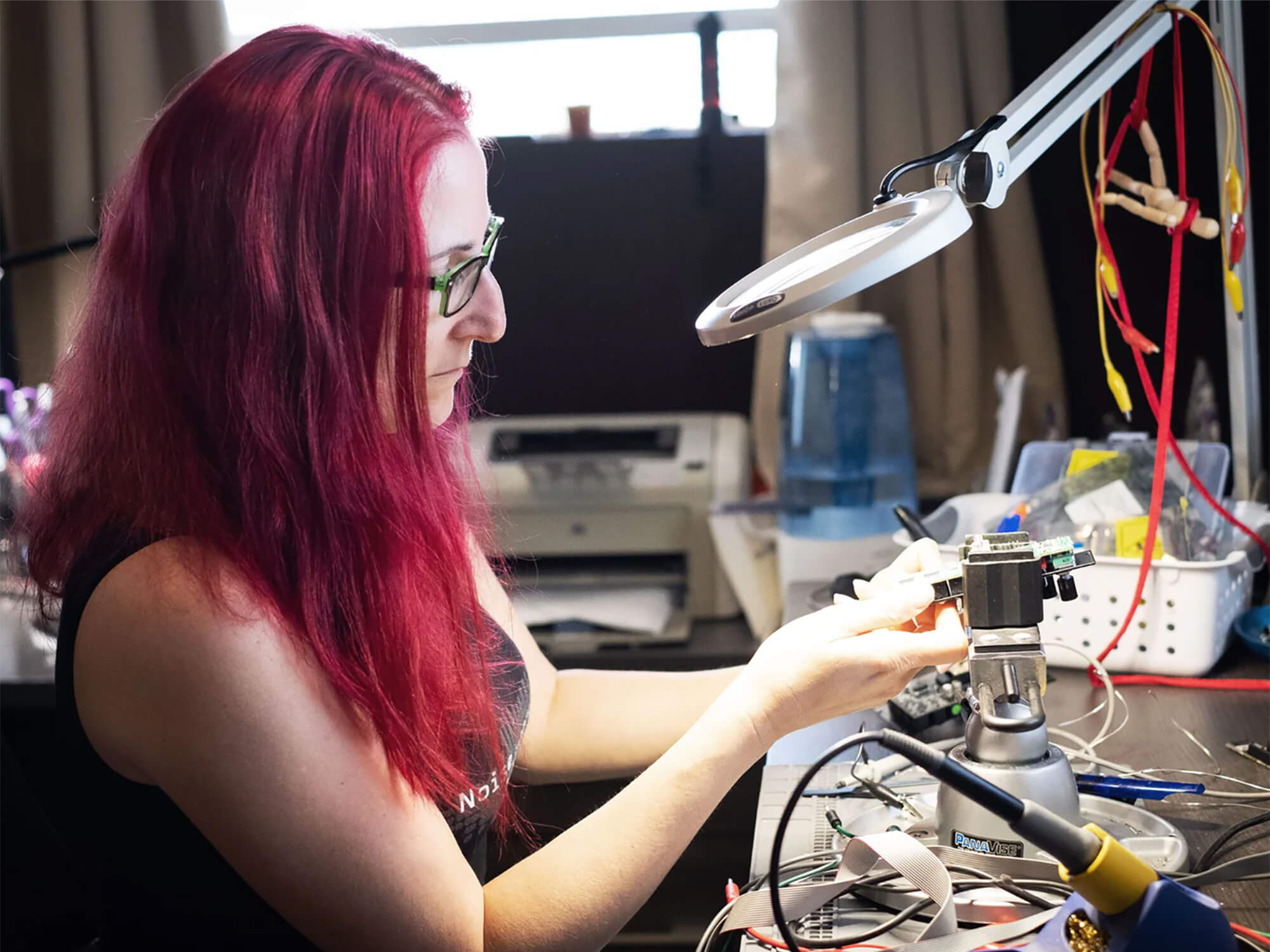
How women- and non-binary-led music tech manufacturers are navigating a male-dominated industry
Noise Engineering, Manley Labs and Ohma Microphones all have women and non-binary leaders – here are their experiences in the music production scene
Kris Kaiser of Noise Engineering. Image: Ben Clark, Ujin Kim and Britt McTammany via Shoutout LA
We Are Moving The Needle’s Fix the Mix report revealed that female and non-binary producers and engineers earned less than 5 per cent of technical credits on 2022’s most-streamed songs.
READ MORE: The music production industry has a gender problem – here’s how we can fix it
The report examined gender representation and inclusivity in the music industry. It’s mission? To encourage gender equality. What it further revealed was the stark inequality that exists within the world of music technology and the lack of support seen to female and non-binary individuals trying to make their way in the predominantly male space.
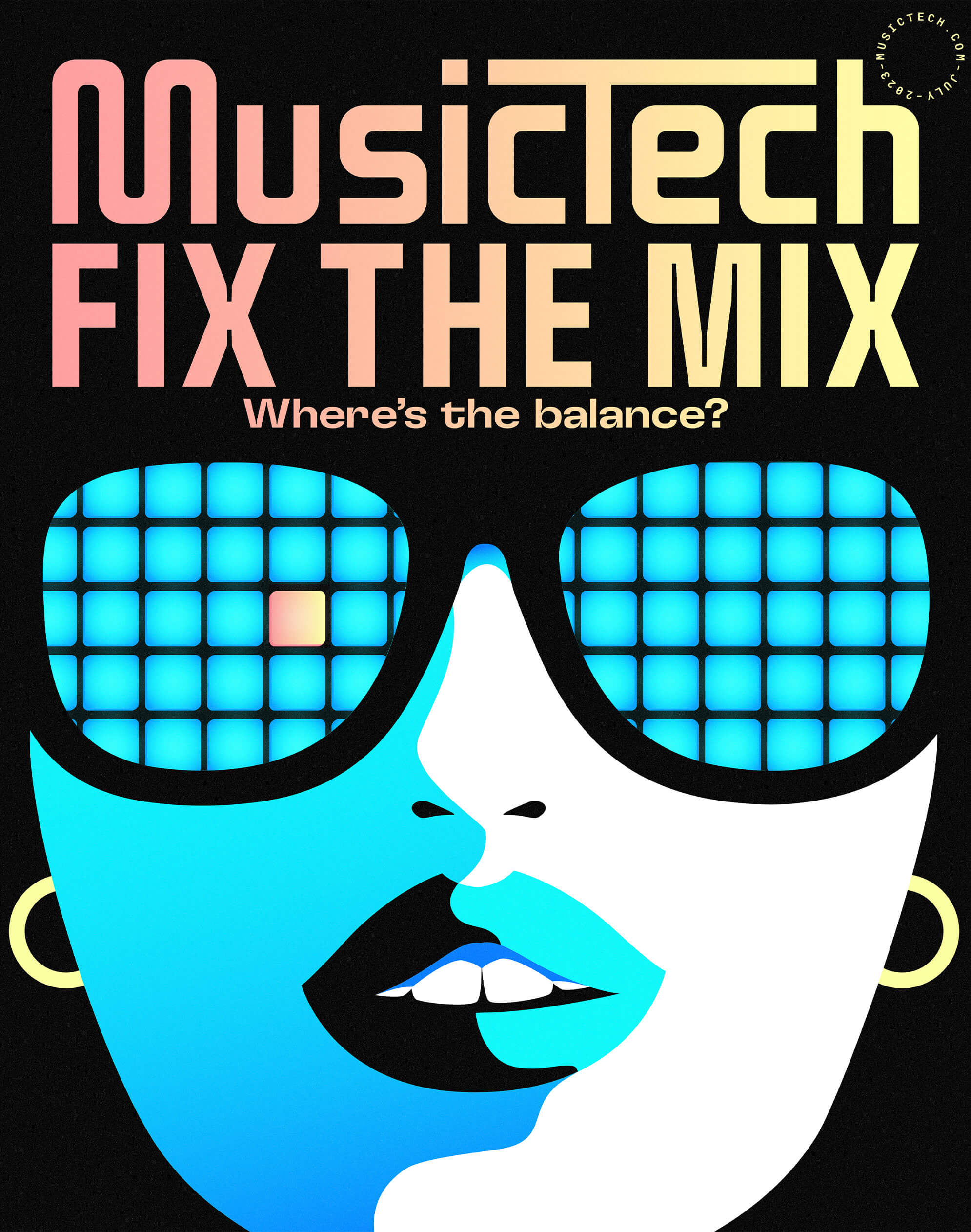
A gleamingly challenging industry in terms of gender equality is manufacturing. In some of the biggest music technology manufacturers in the world, most if not all the leading individuals making the important decisions are men. With more and more young women and non-binary individuals wanting to make this way in the fast-growing, creative, and hands-on industry, there is a need to change our understanding of what makes a manufacturer in 2023 and see difference as a strength and not a weakness.
Journey into the industry
Manley Laboratories is led by self-proclaimed ‘Tube Chick’ EvaAnne Manley, who joined the company at 20 years old during a sabbatical from university. Focusing on tube vacuum amplifiers, before moving on to the world of pro audio and hi-fi, she admits she had “zero experience” in the world of electronics, despite her step-dad owning Ampeg in the late 60s.
“At the time, it wasn’t that women were excluded,” says Manley, “it just wasn’t exposed to the possibility that I could study engineering like that. By the time I figured it out, I had a year left of school and it was too late, so I just finished my degree as quickly as possible and jumped straight into tube amps.
“When we talk about these things now, it’s important to say that the opportunities are there,” she continues. “You can earn a great living combining your musical talents and your communication talents into one job.”
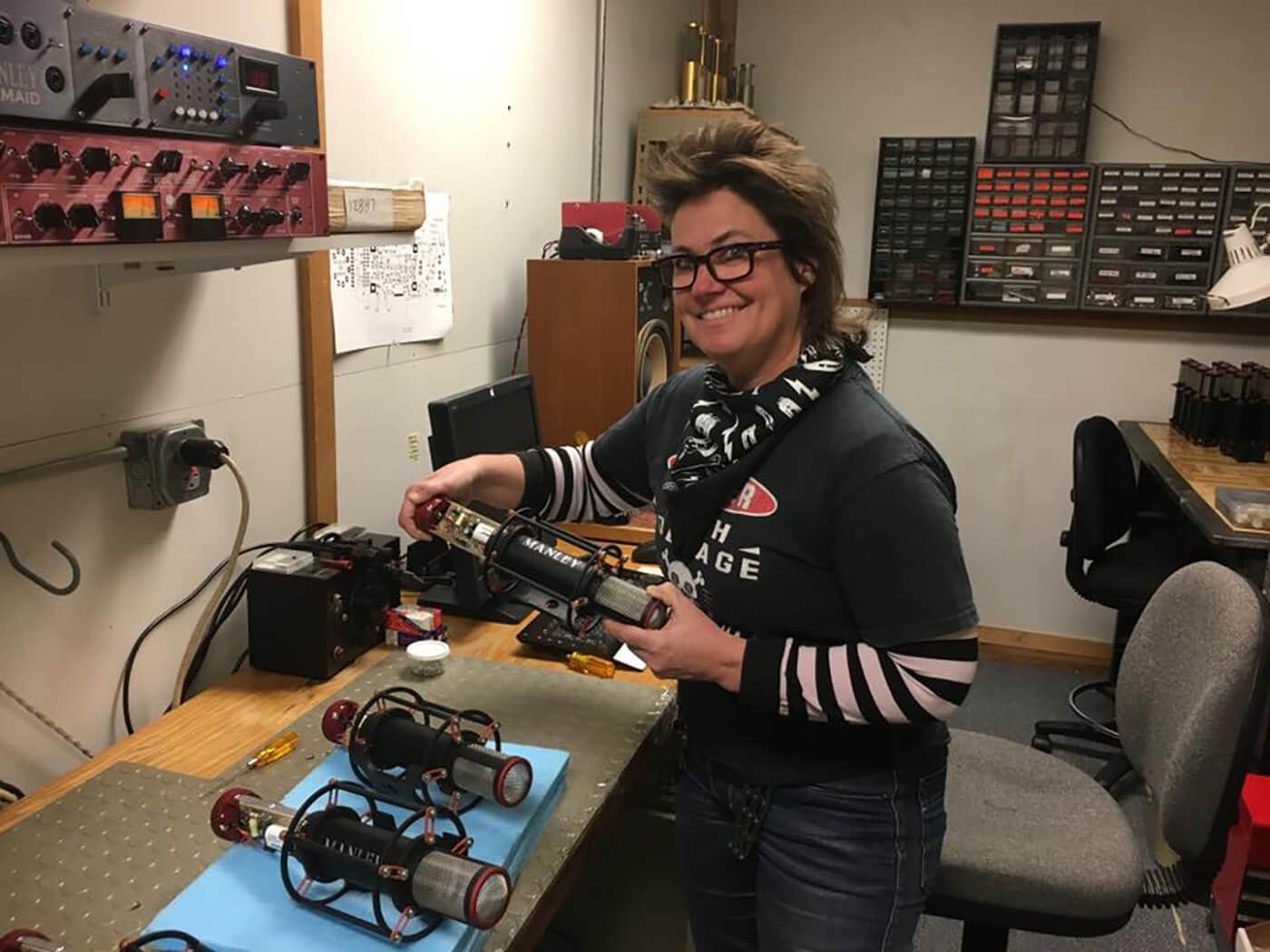
It’s a similar experience for Noise Engineering’s Kris Kaiser, who founded the Eurorack modular synthesis brand alongside her husband Stephen McCaul. Kaiser jumped from being a biology professor to working in hardware development.
“I didn’t have a lot of experience in electro-engineering,” says Kaiser. “I was told explicitly that, in the modular synth world, there are a lot of companies that are husband and wife teams, and I was told that wives just do the business side of things.
��“But that’s not true. It’s not to say it’s not important – and the women who are taking care of that are doing an amazing job, and I don’t mean to denigrate that in any way – it’s just not all I do.”

The assumption that women don’t want to engineer or don’t have the ability to work in the industry is a harmful one. As summed up by Manley, it’s not that women were purposefully kept away, but they just weren’t “exposed” to the reality of themselves working within music technology.
Ohma, led by three queer and genderqueer individuals, Charlene Gibbs, Sammy Rothman, (the founders of the company) and Marc Kuzio (director of business development), found a different way into the industry.
With over 30 years of combined experience in the music tech industry, they realised that they wanted to form a microphone brand that truly represented them.

Ohma mics are bold, colourful and incredibly unique. They have set out to do something to break the mould, and it’s empowering to see.
“We thought, ‘is this ok?‘ Of course it is, fuck it! This is our thing,” says Rothman. “The audio industry is so ass-backwards. Everyone is trying to make clones of everybody else and do the same thing.”
There’s nothing wrong with clones of course, they make up most of the industry and are hugely successful for companies that want to take something great and put their own spin on it. However, Ohma evidently wanted to make something for those who didn’t feel represented by what was already out there.
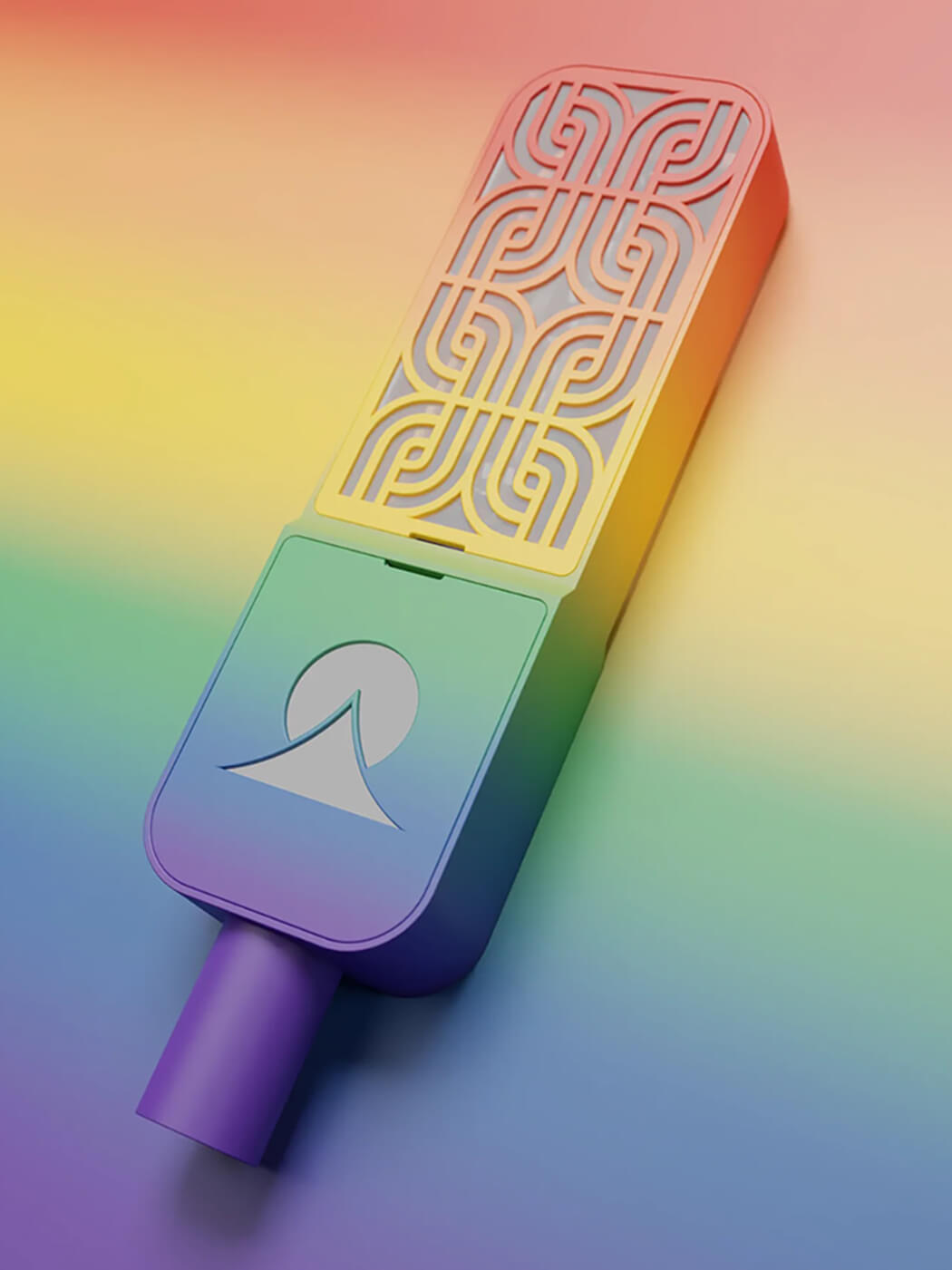
“Even from the beginning, our inboxes got so many messages from people saying that they feel seen by us and are rooting for us and our proud,” says Kuzio. “I use the concept of wearing a mask, especially in a field like this when you feel like you have to hide your identity and we can be so unapologetically us.
“It’s been really moving both on a cultural level but also to say regardless of anything, these mics sound good.”
“When we started, we felt that the audio industry world is very gatekeepy and secretive. Everyone is very protective over their design. We started this because we are engineers and we wanted to have mics for ourselves. We wanted to make cool things for cool people.”
Challenges in industry
Even after breaking into the industry, or establishing your brand, each of the manufacturers admitted that there were still hoops to jump through.
“If I had just been a worker bee, where I wasn’t married to one of the principals, it may have been easier for me because I wouldn’t have had the whole ‘you’re married to him’ excuse which people would use,” explains Manley. “I was always fighting to be my own person and be taken seriously for what I’d figured out or learned. I just had to keep my head down and keep being awesome!”
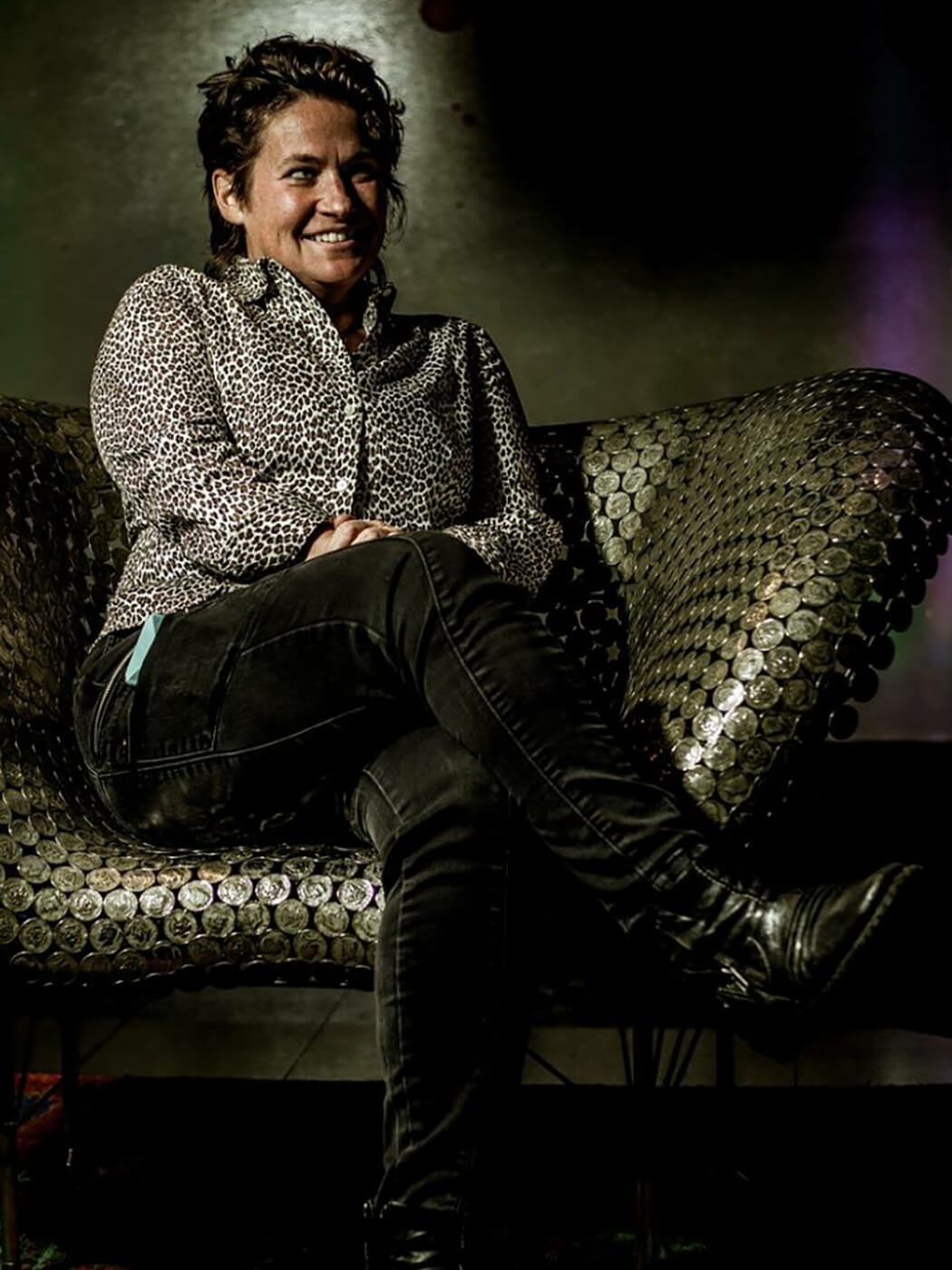
Kaiser, too, notes the difficulties of being undermined compared to her husband, just because she is female.
“Me and colleagues that are female or non-binary have spoken about the importance of just showing up and being present and visible. As a team, we try to make sure we are front and centre. I honestly am much happier being in my hobbit hole of an office, but I put myself out there because I think the representation really matters and so you’ll see me on the blog, on the website, because I have to.”
Does she like being forced into this position? “No! I hate being front and centre,” she admits. “I absolutely hate it, but it has to be done. It isn’t just men who are the gold standard of the job. I would like to see people have a more inclusive approach to who can do things, and this is for all industries!”
Ohma’s Charlene Gibbs instead finds that a lot of the criticism they face is based on their appearance, rather than what they are capable of:
“I’ve done trade shows since I was 12. To be completely ignored in pro audio to now where I feel like I have really demanded a lot of validation from my peers,” explains Gibbs. “That took over 15 years, and that could have been a lot shorter time if I were Sammy. I’m a musician and producer too, and people still don’t think I’m the one who’s doing the work. It’s nuts. There’s still a lot of reflexive thoughts where they just really underestimate you.”
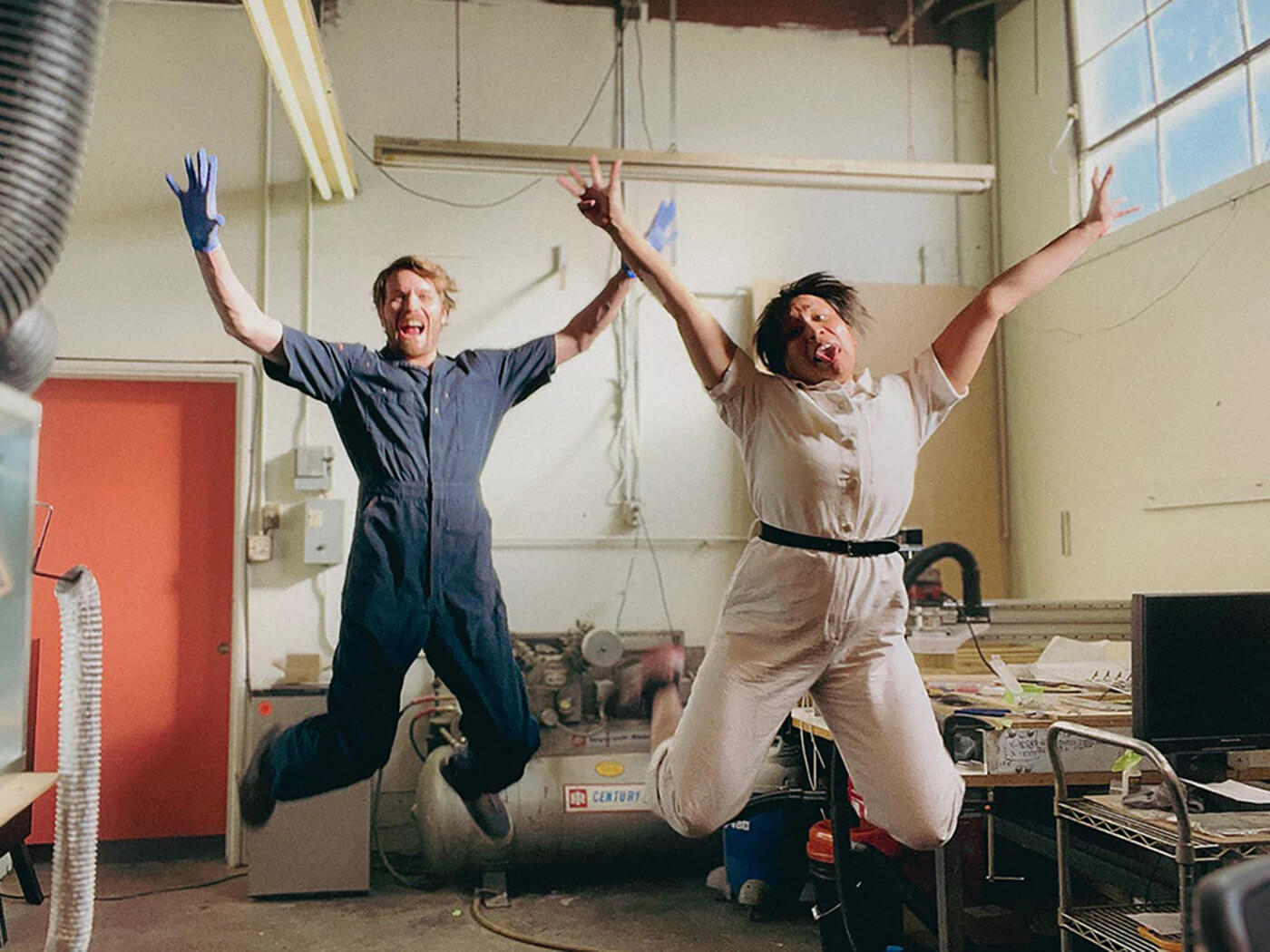
“Funnily enough, we’ve had some people say, ‘Oh your mics just look good, blah blah blah, bet they sound like shit.’ And they don’t even engage after that,” the founder continues. “They’ve decided because they look cool and they’re colourful and have a sleek presentation, which is outside of the norm, then the inside is trash. I was just thinking, ‘hang on a second, I know where I’ve heard this before. Hmm, oh – with me!’ I couldn’t be this cute girl growing up, otherwise I was worried people would think there was no substance on the inside.”
Manley and Kaiser both continue to find trade shows challenging. While Manley admits that she felt she wasn’t “pretty enough” to be a “booth babe”, she was often dismissed by the old white men that would come up to the booth and ask about the products. Similarly, Kaiser revealed that a “surprising number of people” would walk directly past her, to a man wearing the same t-shirt to ask for a demo.
“Some will look directly at me, and then keep on walking,” Kaiser continued. “We can only laugh it off at this point because it is so common it’s comical.”
Inspiring future generations
In the words of Kris Kaiser, “visibility is important” when it comes to inspiring the future generations, or any women and non-binary people to make that step into the world of music technology.
Something that is prominent when discussing the problems surrounding being female, queer and genderqueer in the music technology industry is the lack of role models.
“People can say, ‘Oh, women can do this,’ which of course we know,” says Kaiser. “But it’s clearly hard for some people to visualise if they can’t see it.”
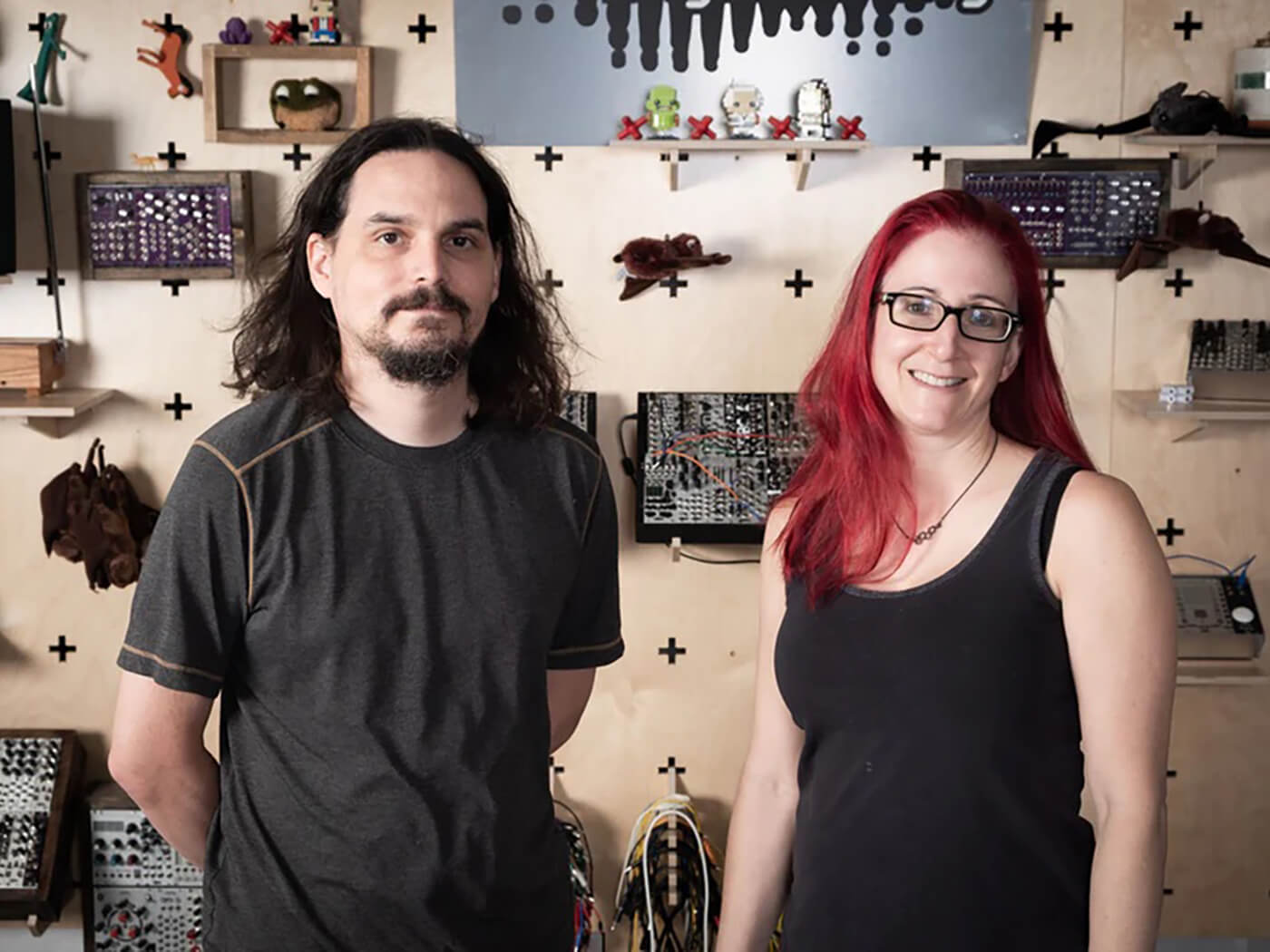
“I don’t necessarily have any mentors that have looked like me,” says Gibbs. “I’ve had to really do this on my own. I thought about how I would have been more knowledgeable in the industry when I was younger, if I had a touch point: a figure or being that I can at least emulate or find inspiration from. I just hope people see Ohma and take that as their touch point.”
“Something all three of us have struggled with at some point is imposter syndrome,” agrees Marc. “You just need to trust your instincts, and not do things just because it doesn’t look like what the industry is doing. When you find an opportunity, you just have to take it.”

However, for Manley, the real difficulty with inspiring future young girls and non-binary people is knowing how much harder it is going to be.
“My advice for girls who want to get into the industry is to work twice as hard and kick ass. They’re kicking ass twice as hard because they have to – we have to!”
These brands and voices are only three examples of the ever-growing diverse world of female and non-binary-fronted music technology companies. Whether intentional or not, they are all laying out an option for future generations to feel inspired by the work they are doing, and hopefully continue on this innovative path.
For those at Manley Laboratories, Noise Engineering, and Ohma, the future of what the manufacturing space looks like is incredibly clear. They have started the push towards a more equal workspace, and better representation within the world of music technology. Being in a male-dominated industry can be challenging, but with the help of everybody in the industry, no matter one’s gender, it can become a much more creative and diverse place.